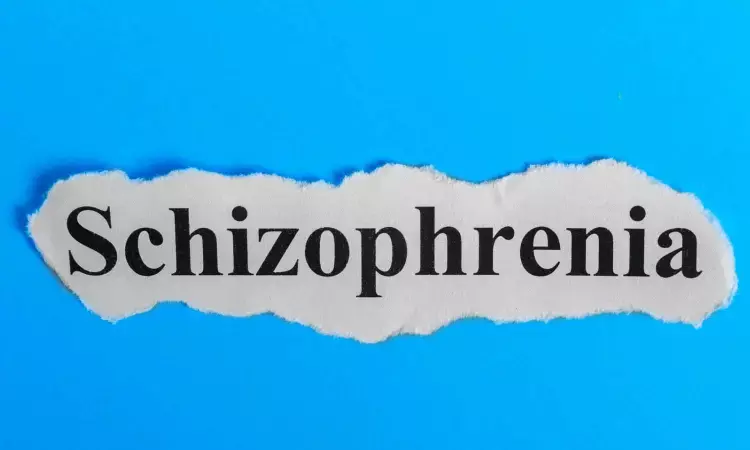- Home
- Medical news & Guidelines
- Anesthesiology
- Cardiology and CTVS
- Critical Care
- Dentistry
- Dermatology
- Diabetes and Endocrinology
- ENT
- Gastroenterology
- Medicine
- Nephrology
- Neurology
- Obstretics-Gynaecology
- Oncology
- Ophthalmology
- Orthopaedics
- Pediatrics-Neonatology
- Psychiatry
- Pulmonology
- Radiology
- Surgery
- Urology
- Laboratory Medicine
- Diet
- Nursing
- Paramedical
- Physiotherapy
- Health news
- Fact Check
- Bone Health Fact Check
- Brain Health Fact Check
- Cancer Related Fact Check
- Child Care Fact Check
- Dental and oral health fact check
- Diabetes and metabolic health fact check
- Diet and Nutrition Fact Check
- Eye and ENT Care Fact Check
- Fitness fact check
- Gut health fact check
- Heart health fact check
- Kidney health fact check
- Medical education fact check
- Men's health fact check
- Respiratory fact check
- Skin and hair care fact check
- Vaccine and Immunization fact check
- Women's health fact check
- AYUSH
- State News
- Andaman and Nicobar Islands
- Andhra Pradesh
- Arunachal Pradesh
- Assam
- Bihar
- Chandigarh
- Chattisgarh
- Dadra and Nagar Haveli
- Daman and Diu
- Delhi
- Goa
- Gujarat
- Haryana
- Himachal Pradesh
- Jammu & Kashmir
- Jharkhand
- Karnataka
- Kerala
- Ladakh
- Lakshadweep
- Madhya Pradesh
- Maharashtra
- Manipur
- Meghalaya
- Mizoram
- Nagaland
- Odisha
- Puducherry
- Punjab
- Rajasthan
- Sikkim
- Tamil Nadu
- Telangana
- Tripura
- Uttar Pradesh
- Uttrakhand
- West Bengal
- Medical Education
- Industry
Long-term Asenapine Well-tolerated And Effective Treatment Option for Schizophrenia

Schizophrenia is a severe and disabling mental disorder affecting 0.5% to 1.5% of adults, characterized by a range of symptoms including positive, negative, and cognitive impairments. The debilitating nature of this disorder often leads to reduced social functioning and overall quality of life for patients. In the quest for effective treatments, a recent study published in Neuropsychopharmacology Reportsby Toshihiko Kinoshita and colleagues has examined the potential benefits of long-term treatment with asenapine, a second-generation antipsychotic.
Second-generation antipsychotics are known for their ability to target multiple receptors, including dopamine and serotonin receptors, resulting in improved management of a broader spectrum of symptoms compared to first-generation antipsychotics. While these drugs are generally associated with fewer extrapyramidal side effects, they do come with their own set of challenges, such as weight gain and hyperprolactinemia.
The study, which followed an initial 6-week double-blind trial of asenapine sublingual tablets in Asian patients with acute exacerbation of schizophrenia, assessed the safety and efficacy of a 52-week treatment period using flexible doses of asenapine. The subjects consisted of 201 individuals, including 44 who initially received a placebo (P/A group) and 157 who received asenapine (A/A group) in the previous trial.
The results revealed the following key findings:
● Adverse events were reported in 90.9% of the placebo group and 85.4% of the asenapine group, showcasing that long-term asenapine treatment is well-tolerated.
● Serious adverse events occurred in 11.4% of the placebo group and 20.4% of the asenapine group.
● No significant changes were observed in body weight, body mass index, or measurements related to glycated haemoglobin, fasting plasma glucose, insulin, and prolactin levels.
● The Positive and Negative Syndrome Scale (PANSS) total score and other measures indicated a sustained efficacy rate of around 50% between 6 and 12 months of asenapine treatment.
The study's outcomes suggest that long-term treatment with asenapine not only maintains its efficacy but also offers a well-tolerated option for patients with schizophrenia. The ability to sustain the positive effects of the drug while minimizing adverse effects is encouraging, as it signifies a potential path toward improving the quality of life for individuals grappling with this challenging disorder.
Asenapine's ability to address a broader range of symptoms beyond positive ones, including negative symptoms and cognitive impairment, underscores its potential to positively impact patient social reintegration and overall quality of life. While challenges remain, the findings are a promising step toward enhancing the long-term management of schizophrenia.
It is essential to further validate these results through larger and longer-term studies to establish the safety and efficacy of asenapine in a wider population and under different conditions. These findings highlight the continuous efforts in the field of psychiatry to refine treatment strategies and offer better solutions for patients with schizophrenia.
Reference:
Kinoshita, T., Takekita, Y., Hiraoka, S., Tamura, F., & Iwama, Y. (2023). Long‐term safety and efficacy of sublingual asenapine for the treatment of schizophrenia: A phase III extension study with follow‐up for 52 weeks (P06125)—Secondary publication. Neuropsychopharmacology Reports. https://doi.org/10.1002/npr2.12342
Dr Kamal Kant Kohli-MBBS, DTCD- a chest specialist with more than 30 years of practice and a flair for writing clinical articles, Dr Kamal Kant Kohli joined Medical Dialogues as a Chief Editor of Medical News. Besides writing articles, as an editor, he proofreads and verifies all the medical content published on Medical Dialogues including those coming from journals, studies,medical conferences,guidelines etc. Email: drkohli@medicaldialogues.in. Contact no. 011-43720751


